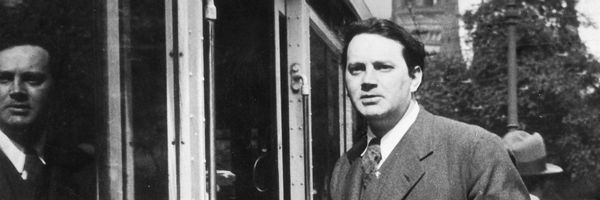Don DeLillo's Sublime Silence

Don DeLillo's novella The Silence came out on October 20. It was advertised in its publisher blurb as being centered around a catastrophic event from which "the digital connections that have transformed our lives are severed." What follows is a far-reaching reading of the text, carrying from the opening to the close, not an introductory review.
I was particularly eager to read DeLillo's depiction of this dynamic, because I had already noticed it done twice (movingly, in both cases) last year: first with Tim Maughan's Infinite Detail, and then two months later with Karen An-hwei Lee's The Maze of Transparencies. This sort of post-Internet vision appears to also drive another recent (October 6) release, Rumaan Alam's Leave the World Behind, which I have not read:
They bring the news that a sudden blackout has swept the city. But in this rural area—with the TV and internet now down, and no cell phone service—it’s hard to know what to believe.
As I recently explored, these modern communication systems complicate literary writing and narratives in many ways.
The Pseudo-Contemporary
It is a horror trope that phone lines go dead, because calling for help, or cross-checking uncertainty with an external party, is a fast way to dissolve the tension on which such stories rely. In our current world of hyperconnectivity, it is not just a matter of reaching a landline in a house, but devices near us, on us, in us transmit information to people and other machines constantly. Most traditional stories need that technology gone in order to function. Back in 2012, Toby Litt wrote,
What we’re going to see more and more of is the pseudo-contemporary novel – in which characters are, for some reason, cut off from one another, technologically cut off. Already, many contemporary novels avoid the truly contemporary (which is hyperconnectivity).
Now we are seeing this cutting off technologically not just in terms of a phone line being cut, but as a complete global collapse. The whole system is so intertwined that it all needs to go, or at least seem like it has within the frame of the story.
DeLillo's story is not caught up in the same questions as Maughan's or Lee's, however. There are occasional passing questions about what will happen to that world of digital connections, but the core story is caught up in what Litt calls "the pseudo-contemporary." The main things which are impacted by the power outage are a plane, carrying two of the characters, and the television which is meant to be showing the Super Bowl. Next in importance: the elevator does not work (and they are on the eighth floor), a digital traffic-guiding system has stopped, and taxis are not running.
The Catastrophic Farce
As DeLillo depicts it, the concern for the online world seems almost comical to worry about here. There is one moment where they check their phones, finding them dead. They check the landline, "a sentimental relic," and have no luck there either. A laptop and a desktop computer are both quickly consulted and confirmed to be non-operational. This functions more like a formal clearing of any uncertainty than a major point of concern. In Ruth Ozeki's A Tale for the Time Being, for instance, when a storm temporary knocks out Ruth the character's Internet connection, it is its own crisis about the loss of online documents, video footage, and all the other research she is doing to assure herself of her sense of reality.
In The Silence, the informational networks we have built up are not of concern. All that matters is our entertainment (the American football game) and our lives (nuclear launch systems), a nod back to his second novel, End Zone. DeLillo seems to mock the very idea that we would worry about what if our data systems go out.
Wildly, though the novel starts with a critical plane failure leading to a crash landing, this ends up being a non-concern outside of further evidence that the outage is total. The two characters on the plane are fine. One hits his head on the window as the plane crashes and bounces around. At the front desk of the hospital, the woman working there is unconcerned by the plane crash. "Everyone I've seen today has a story," she says. Despite this society-wide chaos, the hospital visit seems remarkable fast. It is emphasized several times during the flight that they are landing in Newark, but need to get to uptown Manhattan for the Super Bowl party, but then they barely seem late at all.
With phone lines down, I expected the typical drama of the characters at the party wanting to reach out, the panic of what happened to their missing guests. The question comes up a couple times, very passively. Then they show up to no huge relief or outburst of tears. The two casually take off their coats as Diane asks about their airplane food, the tired joke subject of satires of Seinfeld-esque situational comedy.
There is no precise timing without screens. As Martin goes on about World War III and World War IV, it seems as if years have gone by, when really it is all the same night. The whole story takes place over less than a day. Comically, the worst is assumed almost immediately and assumptions only grow worse. Nicer suggestions, such as a temporary blackout, something lasting maybe a few days, are thrown out, based on no new information.
The Auto-Filled Novel of Manners
One of the challenging things about The Silence is that the impacted technology is too close to us. As his middle-aged cast talks about drones, simulations, and cryptocurrencies, it is presented as unreal.
It is not just the awkwardness of people attempting to describe something they do not understand. In the opening, two characters are speaking, and when one remembers a detail, she is asked, "Did you sneak a look at your phone?" There is an expectation that our conversations are guided by an undercurrent of informational flow. DeLillo proposes that, absent these feeds, our minds are by now programmed to keep them going virtually. Football announcements, commercials, tech jargon, manuscripts by Albert Einstein one read – these all get parroted back endlessly, to no one particularly listening.
Stylistically at times, particularly during dialogue, I considered that perhaps this writing was generated by GPT-2 or something, so ill-fitting was, for example, this speech from the middle-aged hospital worker:
Whatever is going on, it has crushed our technology. The word itself seems outdated to me, lost in space. Where is the leap of authority to our secure devices, our encryption capacities, our tweets, trolls and bots. Is everything in the datasphere subject to distortion and theft? And do we simply have to sit here and mourn our fate?
In normal life, no one says "the datasphere," for instance. It is not a term. It is, however, something we would imagine saying in a disaster movie about a global collapse. It is less important that the digital connections get wiped out. More striking is the collapse of normal communication, everyone falling back onto auto-fill in normal, unmediated speech. At one point, it is suggested that people have phones under their skins. Whatever the explanation, DeLillo increasingly writes as though that were the case.
DeLillo's most powerful (though not particularly original) line about digital technology comes through describing it in an immediately recognizable way, but without mentioning the device directly. It is "a familiar shape making noise somewhere nearby," to which our attention is normally almost wholly attuned, making us almost blind to all else: our neighbors, even our spouses.
Within the scope of the novel, characters do not seem to recover from this interpersonal disconnect, but the story is only half a day. Though not directly alluded to in the novella, a text which can provide a great vantage point for us here is Samuel Taylor Coleridge's 1797 poem "This Lime-Tree Bower My Prison."
A Delight Comes Sudden
In Coleridge's poem, several friends are visiting and set to go out on a walk through the surrounding countryside. A temporary burn on Coleridge's foot leaves him confined to resting beneath a tree near their cottage while the friends go out on the walk.
The poem starts in a clear melodramatic tone: "Well, they are gone, and here must I remain, / This lime-tree bower my prison!" If you are left unsure how much Coleridge, from his current writing perspective, is distant from his earlier sense that this tree was somehow a prison, he soon refers to his "Friends, whom I never more may meet again." Readers can then realize that of course his friends will return from their leisurely stroll through nearby meadows, and this speaker, though autobiographical, is presented as speaking through a moment of heightened emotion.
As the poem progresses, what begins as a solemn accounting of all the wondrous sights which he is missing, which he would have liked to have had for his memory, slowly shifts to him imagining the walk virtually in real-time. He tracks his friends in his mind through what he knows of the landscape, and thinks what they must be seeing at various points. In the same way, DeLillo's Max recites first the game ("Avoids the sack, gets it away – intercepted!"), then the commercials ("Wireless the way you want it. Soothes and moisturizes."), then back again.
What is missing in this comparison is the final connection in a moment of epiphany. Coleridge realizes that through his imagination, and through his earlier walks in this same spot, this lime-tree bower is no prison at all. He then thinks especially of his city-based friend Charles Lamb on the walk, and how wonderful this must be for him, enjoying "With lively joy the joys we cannot share." He imagines the sights Lamb must be enjoying, and takes joy in turn in imagining Lamb's sensibility which enables him to take pleasure in the chaos of the city. As Coleridge concludes, to Lamb, "No sound is dissonant which tells of Life."
That last point offers some possibility of redemption for The Silence. Among all its stilted, mindlessly repeated phrases, we can perhaps glance into the life of our world. It is the world, Martin realizes, that matters, not individuals. He asks if everyone understands that, but "Max is not listening. He understands nothing." We end with a line repeated endlessly throughout the novella, Max staring into the blank screen.
The lingering questions, though, are what did happen and what will happen. We do not know either of these. At times, DeLillo's vision here seems bleak, but it might just be sublime. From the safe remove of reading this in my well-lit room, my functioning phone nearby, the situation does not read as so permanent or apocalyptic as the characters assume.
We only see them in the immediate aftermath, in a state of shock. Tessa thinks up the first line to her new poem, "In a tumbling void." The rest is still to be written. Whether the electricity and networks come back the next day or not, art promises to chart out a new vision, a new way to speak in this tumbling void. It is just a shame that The Silence only gives us the promise of that, and not the thing itself.
To learn more about new fiction, the post-Internet, poetry, and the sublime, subscribe to my free monthly newsletter. I bring new literature, electronic literature, and literary history together in conversation each month. Sign up below:





